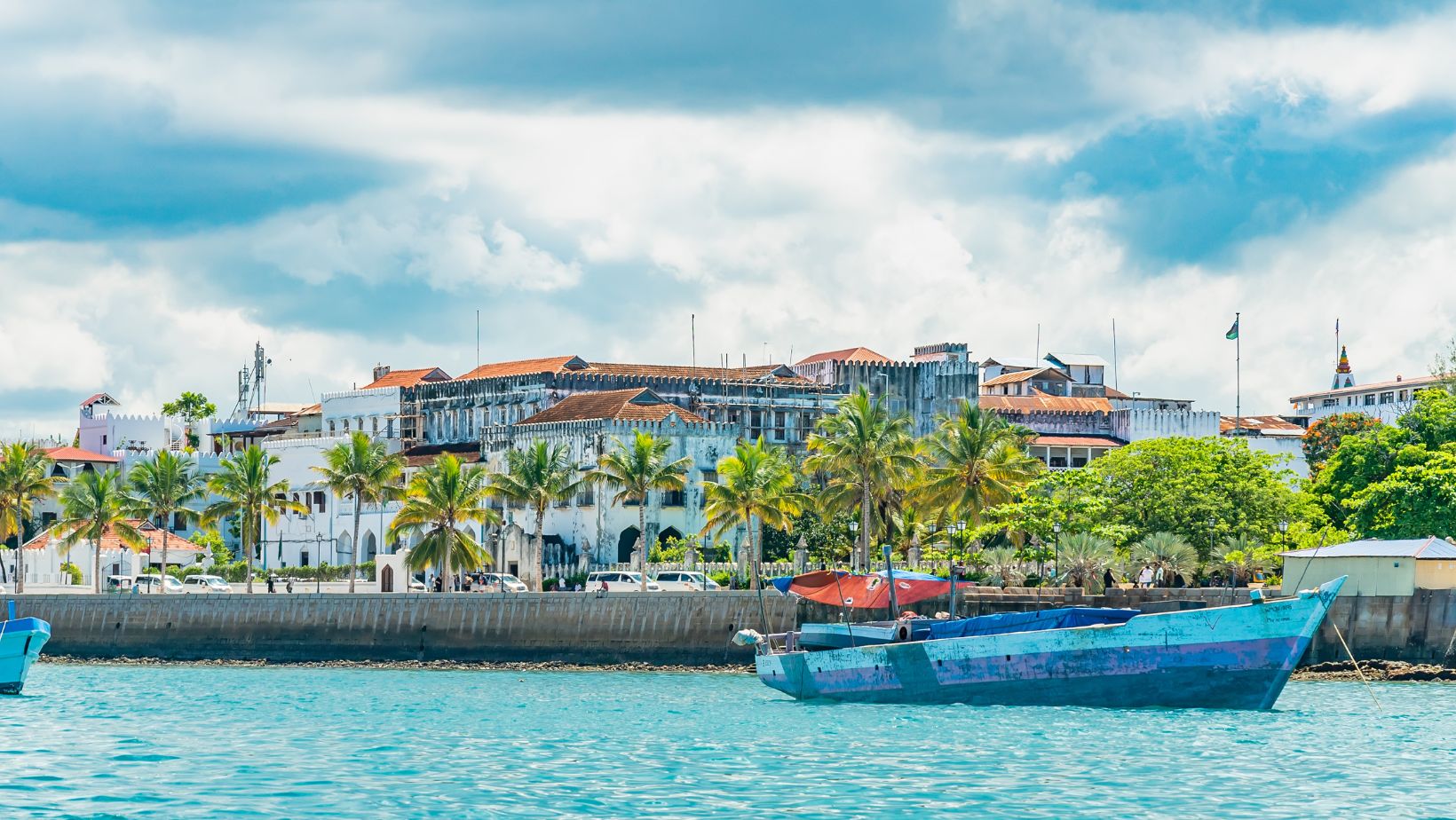
Zanzibar, a stunning archipelago off the coast of Tanzania, is often romanticised for its picturesque beaches and crystal-clear waters. However, the true essence of this Indian Ocean paradise lies within its rich tapestry of history and culture, crafted over centuries of trade, colonisation, and a unique blend of influences. From spice routes to the sway of the Swahili language and the remnants of ancient civilisations, Zanzibar holds stories that deserve to be explored.
The Ancient Tides of Trade
Zanzibar’s strategic location made it an essential hub for trade dating back to antiquity. Ancient traders from Arabia, Persia, India, and even China frequented its shores, exchanging goods like spices, ivory, and slaves. The island became synonymous with the spice trade, particularly in cloves, nutmeg, and cinnamon. These spices not only enriched the island’s economy but also shaped its identity, resulting in a multicultural society that celebrates diverse traditions.
The sites of Stone Town, a UNESCO World Heritage Site, provide a glimpse into this vibrant history. The cobblestone streets, intricately carved doors, and bustling markets reflect the mingling of Arabic, African, Indian, and European influences. Notably, the House of Wonders and Sultan’s Palace stand as testaments to the island’s rich past. For those looking to immerse themselves more deeply, a “Tanzanian Turquoise Temptation tour” can offer insights into both the historical sites and the contemporary life of Zanzibar’s residents, making it a multifaceted experience.
A Melting Pot of Cultures
Zanzibar’s unique cultural landscape is a result of centuries of cross-cultural interactions. The Swahili people, who form the heart of Zanzibari culture, are a blend of African and Arab influences, creating a rich heritage defined by language, music, and art. Swahili is not just a means of communication; it is a vessel for the island’s poetry, proverbs, and oral history.
Music plays a crucial role in the cultural fabric of Zanzibar. Styles like Taarab, which combines African rhythms with Arabic melodies, reflect the intercontinental influences that have shaped Zanzibar’s musical heart. The annual Sauti za Busara festival, held in Stone Town, showcases local talent and further emphasises the role of music in expressing the island’s identity.
Culinary Riches
No exploration of Zanzibar is complete without diving into its culinary delights. The island’s cuisine is a fusion of flavours influenced by trade routes and diverse cultures. Dishes often include fragrant spices like cardamom, coriander, and turmeric. Local specialities feature coconut milk, seafood, and rice, with street food such as “biryani” being the highlight for many.
The Forodhani Gardens food market offers an opportunity to indulge in authentic Zanzibari dishes. Freshly grilled seafood, kebabs, and the famous Zanzibari pizza can be found here, enveloping visitors in the tantalising aromas that fill the air.
Seafood Traditions and Coastal Cooking
Seafood holds a special place in Zanzibar’s coastal cuisine, shaped by centuries of fishing traditions and whole-animal cooking practices common across island cultures. Rather than focusing on a single cut or preparation, many dishes reflect a philosophy of using seafood thoughtfully and completely, whether it’s grilled shellfish, stewed crustaceans, or slow-cooked fish served with spiced rice and coconut-based sauces. This approach mirrors coastal cuisines around the world, where understanding how different parts of an animal contribute to flavor and texture is essential. In dishes featuring shellfish such as lobster, cooks often rely on knowledge of the edible parts of a lobster to maximize taste while minimizing waste, a principle that aligns Zanzibar’s food culture with broader, sustainability-minded seafood traditions found in coastal regions globally.
Festivals and Traditions
Zanzibar’s calendar is rich with festivals that celebrate its history, culture, and diversity. The most prominent is the Sauti za Busara festival, a celebration of African music that not only showcases local artists but also invites international acts. This festival is emblematic of Zanzibar’s commitment to preserving its musical heritage while embracing modern influences.
Additionally, Islamic holidays such as Eid al-Fitr and Eid al-Adha are celebrated with great fervor. The streets are alive with communal prayers, feasting, and traditions that have been handed down through generations. Participating in these celebrations offers a deeper understanding of the island’s spiritual fabric and community cohesion.
Art and Craftsmanship
The art scene in Zanzibar is vibrant, with local artisans showcasing their skills in intricate wood carvings, fabric making, and painting. The legacy of the historical trade routes is evident in the artwork found throughout the island. Handcrafted souvenirs such as intricately carved wooden figurines and vibrant kanga fabrics offer visitors a tangible piece of Zanzibari culture.
Art galleries and studios in Stone Town frequently exhibit contemporary works that draw inspiration from traditional techniques. Engaging with local artists provides insight into how the island’s history continues to influence modern expressions of creativity.
Nature and Conservation
While Zanzibar’s historical and cultural significance is undeniable, the natural beauty of the islands requires recognition as well. The pristine beaches, vibrant coral reefs, and verdant forests contribute to the archipelago’s allure. However, the challenges of tourism and climate change pose threats to this paradise.
Conservation efforts are vital in preserving Zanzibar’s unique biodiversity. Sustainable tourism initiatives encourage visitors to engage with the natural environment responsibly, ensuring that future generations can enjoy the island’s beauty as much as we do today.
Conclusion
Zanzibar is undeniably a treasure trove of history, culture, and natural beauty. It offers an enriching experience that goes far beyond sunbathing on idyllic beaches. By exploring the island’s myriad stories—from the influence of trade routes to the celebration of its diverse cultures—you’ll discover a unique narrative that defines Zanzibar.
Whether you’re indulging in its culinary delights, dancing to the rhythms of Taarab, or wandering the historic streets of Stone Town, the island invites you to immerse yourself in its captivating essence. So, pack your bags and set forth on a journey that promises not just picturesque landscapes but also the rich, intricate tales of Zanzibar’s past and present.
Bob Duncan is the lead writer and partner on ConversationsWithBianca.com. A passionate parent, he’s always excited to dive into the conversation about anything from parenting, food & drink, travel, to gifts & more!

